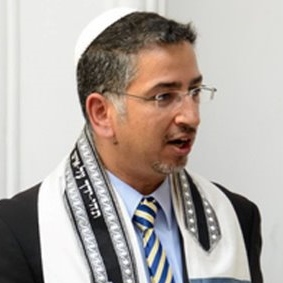Parshot/Festivals
Of blessings given and received
In the opening section of the book of Numbers, the Israelites get organised for their journey to the Promised Land. Not only must they travel through the wilderness with a group of – according to the Torah – more than two million individuals, but they also need to follow the proper worship rituals for G-d throughout this journey.

Rabbi Adrian Schell, Congregation Bet David
Parashat Naso (Lift Up) focuses on the structure of the religious duties our ancestors had to follow throughout their journey. Two detailed administrative accounts frame this parsha: The Levite’s census, and the record of the tribal chief’s gifts for the dedication of the altar.
Whereas Leviticus typically focuses on the ritual purity of the sanctuary, the book of Numbers is concerned with maintaining the purity of the camp as a whole.
Our Torah portion itself is also the source of the following so-called “Birkat Kohanim” – the priestly blessing:
“May G-d bless you and keep you,
May G-d’s face shine upon you and be gracious to you,
May G-d lift up G-d’s face to you and give you peace.”
It’s a beautiful blessing that G-d gave to the priests that we, in turn, give to one another. While the first part of it speaks of blessing and being protected, the second part has this idea of G-d’s face shining and then being gracious to us. The final part initiates this intimate nearness with G-d, creating a real sense of peace and belonging.
In this way, we might see that the blessing itself elevates and gets bigger and bigger, so that ultimately, the final blessing is, firstly, for G-d to see us, and secondly, for us to see G-d.
As a rabbi, I have the opportunity to offer the Birkat Kohanim in many contexts. For example, I give this blessing to our B’nei Mitzvah, during a wedding, and I share this blessing with various other people who come up to the bimah marking moments of transition in their lives. And of course, this blessing is part of our Kiddush when we bless the children on Erev Shabbat.
The divine power of this blessing is revealed by the Torah in the verse that follows directly after. There it says: “And they shall put my name upon the people of Israel and I will bless them.”
In this way, when we give this blessing, not only do we share in this history stretching back to Aaron and his sons, and firmly associate ourselves with G-d, as G-d places G-d’s name upon the people of Israel, but also receive a blessing in return for doing so.
It is wonderful to receive a blessing, but it is even more powerful to be able to give and share that blessing with others. G-d is there to protect us and to grant peace, but the verses in our parsha also remind us to put G-d’s name upon the people of Israel in order to receive G-d’s blessing in return.
May we all have many opportunities to share our blessings with one another.